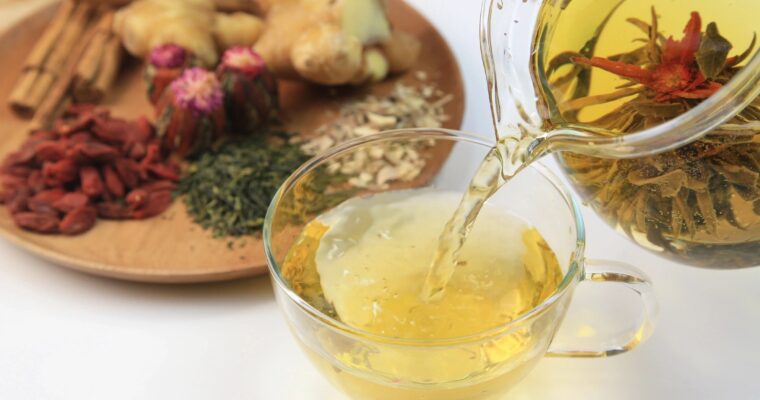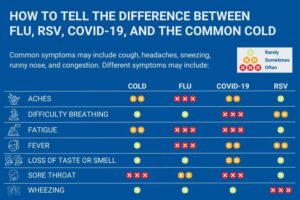COVID-19
Dr. Claire Arcidiacono, ND
I wanted to take the time to review COVID-19. As government safety guidelines and regulations slowly relax I wanted to go over some ways that can be helpful in keeping us healthy. Like any contagious virus COVID-19 is something we should be aware of and work towards keeping ourselves healthy to help reduce the spread.
Coronavirus is also known as COVID-19. This virus is caused by the SAR-COV-2 virus. Like any virus it is spread on respiratory droplets. In other words when someone who has the virus like Bob for example coughs, sneezes, speaks or even breaths the virus can spread. If the droplets land on a surface and you touch it and then touch your eyes, mouth or nose then the virus can infect you! (1)
While anyone can become infected with COVID-19 there are some risk factors you may have that make you at risk for more severe disease. The greatest risk factor for severe disease is age. Anyone who is over 65 years old is at a higher risk of severe disease. Another risk factor for severe disease is having an underlying medical condition. For example those with asthma, chronic kidney disease, chronic lung disease, chronic liver disease, diabetes and even heart disease are all at risk factor for severe disease. Anyone who smokes or is exposed to 2nd hand smoke is also at risk for severe disease. Having a BMI equal to or above 30 is also a risk factor for severe disease. Additionally use of corticosteroids or other immune suppressive medications is also a risk factor for severe disease. If you have a chronic condition talk to your doctor to determine if it places you at an increased risk for severe disease. (2)
Let’s review some of the more common signs of COVID-19. First you may have a fever, cough, fatigue and a loss of taste /smell. Less common symptoms include a sore throat, headache and aches/ pains. You may also experience a skin rash or discoloration as well as red or irritated eyes. Lastly you may have diarrhea. More severe symptoms include shortness of breath, loss of speech or mobility or you may even be confused. In some cases there may be chest pain. (1) For a comparison of COVID-19 vs. viruses with similar symptoms please see the attached chart. (3)
COVID-19 can have some very series complications. While many people will not have complications I want to review some of the more common complications that can occur. These include acute respiratory failure, pneumonia, and acute respiratory distress. Next to the lungs the liver suffers the biggest injuries from COVID-19. Many people who are hospitalized due to COVID-19 develop heart problems. While not as common as liver damage those with severe illness may also experience kidney disease. Having COVID-19 may also lower our immune system’s ability to fight off pathogens leading us vulnerable to secondary infections. Blood clots are also a complication found in those hospitalized for COVID-19. One complication that you may have heard about is “Chronic or long hall COVID” which is where those who have had COVID-19 develop chronic fatigue like symptoms such as bran fog, fatigue, pain, trouble thinking or dizziness. (4)
What can you do to help reduce the spread of COVID-19? Well 1st it’s important to keep good hygiene! Wash your hands and clean regularly touched surfaces. Don’t touch your eyes, mouth, or nose! Stay away from anyone who is sick. If you are sick stay home! Don’t’ forget to cover your mouth and nose when you cough and sneeze. (5) Now what can you do to help boost your overall immune system?
- Life style – Make sure you have a healthy diet full of fruit, vegetables and healthy proteins! Work to reduce stress and get enough restful sleep. If you smoke quit smoking. Reduce the amount of alcohol you consume. All of these life style hacks if you will can help to boost our immune system. (6) At this point many people have chosen to be vaccinated however if you are not vaccinated just like with any vaccine such as the FLU vaccine or shingles vaccine this is an excellent conversation to have with your doctor to determine if this is a good option for you.
- Olive Leaf has been found in studies to help reduce the symptoms of COVID-19 and to even help reduce the length of hospitalization for those with COVID-19. Using Olive leaf extract has also been found to reduce the length of a virus. (7) Please see Invite’s Olive Leaf Extract and Renalaid.
- Garlic has been found in studies to help boost the function of our immune system. (8) Please see Invite’s Aged Garlic! Also feel free to add a few capsules of Aged Garlic to the mix the next time you make pasta sauce!
- Probiotics have been found in studies to help reduce the symptoms of COVID-19. (9) Please see Invite’s Core Probiotic, Probiotic Maintain, Probiotic Hx, Women’s Probiotic and Probiotic Weight. In addition we have our chewable Prozyme Digest.
- Vitamin D has been found to be very helpful in studies when it comes to reducing the spread of COVID-19. (10, 11). Please see Invite’s D3 1000, and 3000IU formulas as our Immunity Hx!
- Our next product spotlight will be on Green Tea!
Sources:
- https://www.who.int/health-topics/coronavirus
- https://www.cdc.gov/coronavirus/2019-ncov/hcp/clinical-care/underlyingconditions.html
- https://www.nfid.org/resource/how-to-tell-the-difference-between-flu-rsv-covid-19-and-the-common-cold/
- https://www.webmd.com/covid/coronavirus-complications
- https://www.who.int/emergencies/diseases/novel-coronavirus-2019/advice-for-public
- https://www.cdc.gov/nccdphp/dnpao/features/enhance-immunity/index.html
- https://www.ncbi.nlm.nih.gov/pmc/articles/PMC9617633/
- https://www.ncbi.nlm.nih.gov/pmc/articles/PMC4417560/
- https://asm.org/articles/2024/january/are-probiotics-effective-against-covid-19
- https://pubmed.ncbi.nlm.nih.gov/35487792/
- https://pubmed.ncbi.nlm.nih.gov/35004568/








